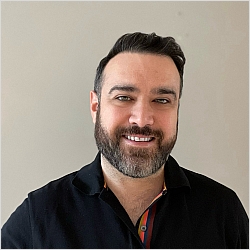What's My Approach to Therapy?
When we've had our feelings chronically invalidated, and when we've experienced abuse, we need a safe person to help us move forward. I use "unconditional positive regard" meaning that I'll view you positively regardless of what you share to help my clients experience what it's like to be in a safe, affirming relationship. Shame and guilt are common when we've lived through these kinds of experiences, usually because of a belief that we're fundamentally flawed and unworthy of good things. A big part of my work is helping my clients learn self-compassion, and unlearn limiting ways of thinking that hold us back and keeps us feeling bad.
I use an eclectic approach, meaning that it's never a one size fits all situation. Some of my favorite tools come from Internal Family Systems (IFS), or parts work- a modality tailored for trauma treatment that allows a client to understand themselves in terms of parts. These parts like an angry part, for example, are mostly there to protect us, but sometimes they act out in ways that don't align with our values, and when this happens we need to get curious about them, and get a sense of how to help them feel safe. I also use body-based approaches, aimed at helping clients understand the physical part of anxiety and trauma, like a rapid heart rate, tense muscles, and shallow breathing. Other approaches include cognitive behavioral therapy, acceptance and commitment therapy, and many more.
I also draw from my extensive experience helping previous clients who've lived through abuse and neglect to help my current clients, and I've trained at New York University, Columbia, and the Institute for Contemporary Psychotherapy. Staying on top of the latest developments in the field of psychotherapy is a passion of mine, and I strive to be the most competent and knowledgeable therapist I can be for my clients.

